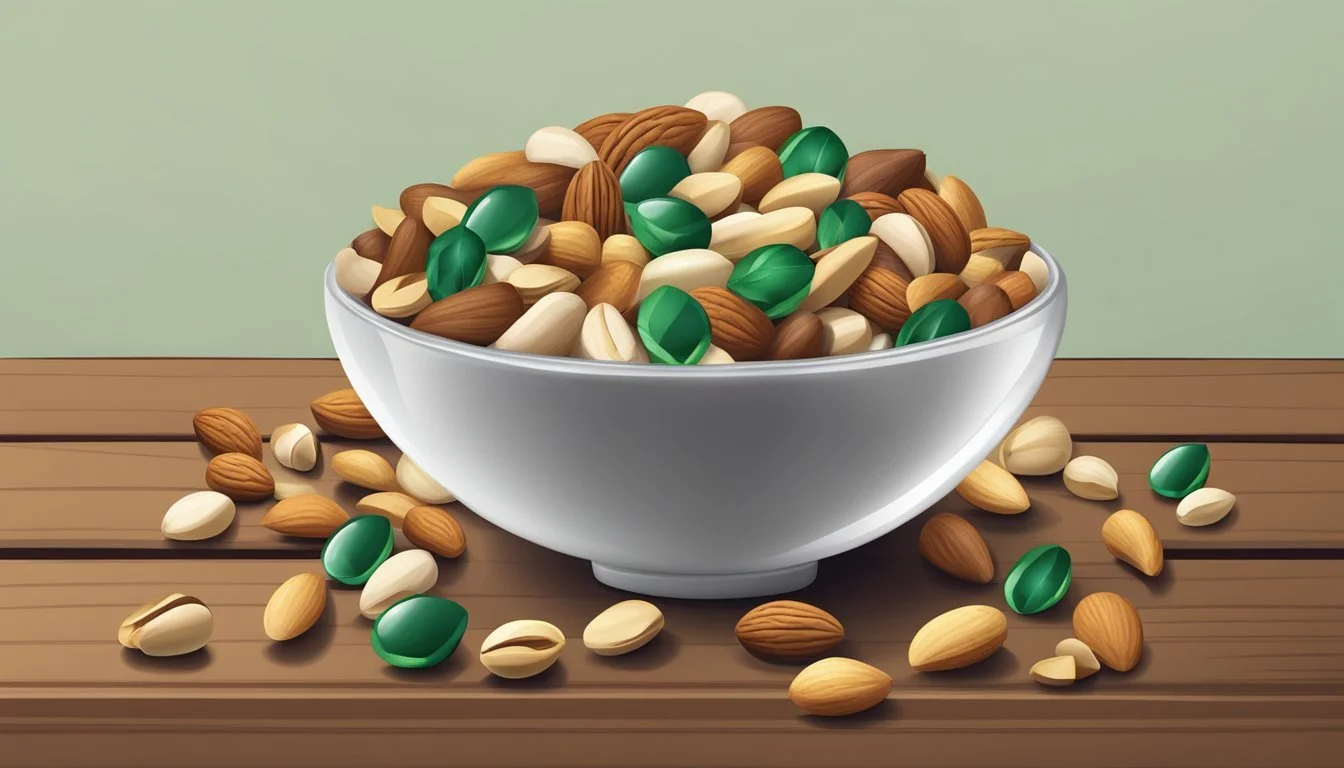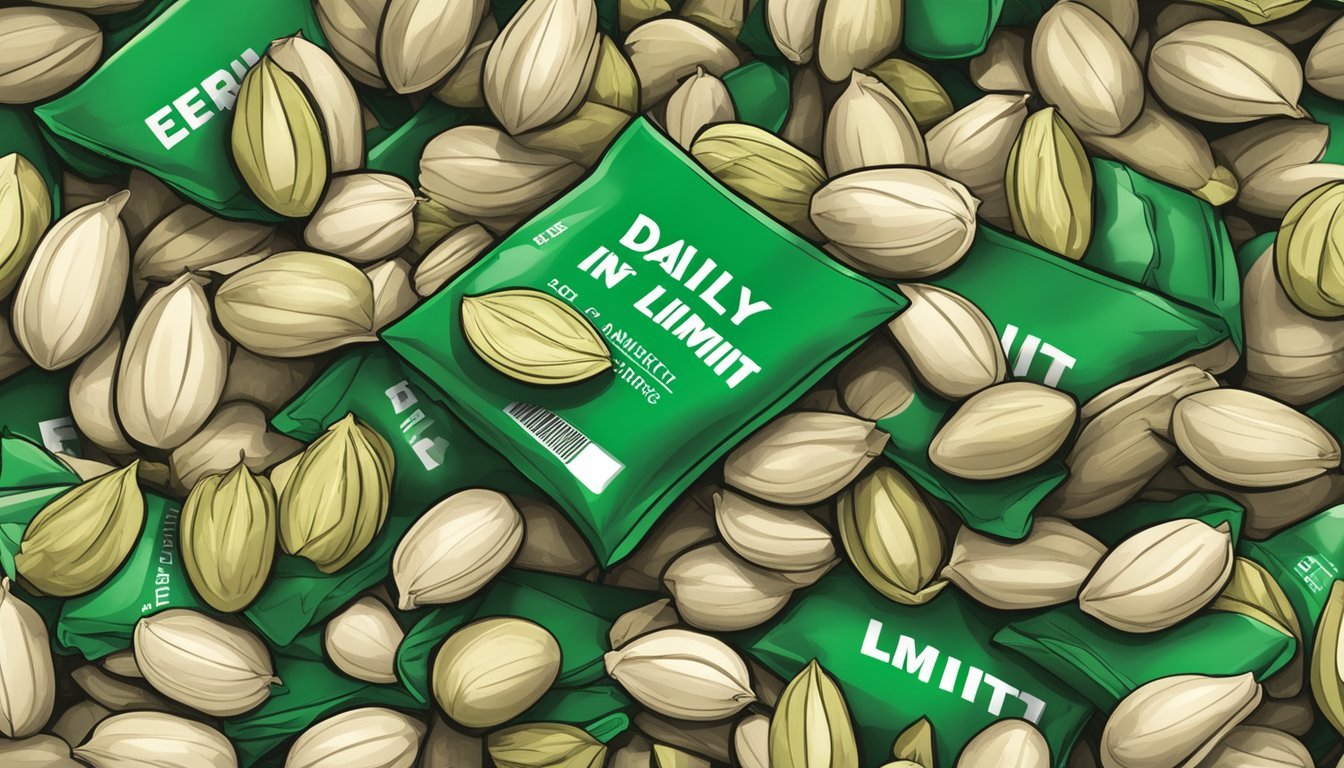How Many Bags of Emerald Nuts Per Day Is Too Much?
Understanding Healthy Portion Sizes
Nuts, (What wine goes well with nuts?) such as those offered by Emerald, are a nutritious snack that can provide various health benefits when consumed in moderation. They are a rich source of heart-healthy fats, protein, fiber, and other beneficial nutrients that can contribute to a balanced diet. Regularly including nuts in one's diet has been associated with a lower risk of heart disease, primarily due to their content of omega-3 fatty acids, fiber, and plant sterols, which are known to help lower cholesterol levels.
However, the key to reaping these benefits without negative consequences lies in moderation. Consuming nuts in excessive amounts can lead to overconsumption of calories and potential weight gain, as nuts are energy-dense. Moreover, certain types such as Brazil nuts contain high levels of selenium, which could be harmful in large quantities. Healthcare providers and dietary guidelines suggest that a daily serving of 30 grams of nuts, which is approximately one ounce or about a handful, is sufficient to provide health benefits without the risk of potential drawbacks.
Nutritional Profile of Common Nuts
Nuts are a dense source of nutrients, varying from rich protein content to essential fatty acids, and they play a key role in a balanced diet. However, portion control is crucial as they are calorie-dense.
Almonds: Vitamins and Minerals
Almonds are an excellent source of vitamin E, magnesium, and manganese. They also provide a decent amount of fiber and protein. A one-ounce serving contains about 163 calories and 14 grams of fat, with only 1 gram of saturated fat, making them a healthy option for those looking to maintain heart health and muscle function.
Walnuts: Heart-Healthy Omega-3s
Walnuts are hailed for their high omega-3 fatty acid content, particularly alpha-linolenic acid (ALA), beneficial for heart health. They also contain antioxidants and are a good source of manganese and copper. Each one-ounce serving has roughly 185 calories and 18.5 grams of fat, with about 2.5 grams of monounsaturated fats and 13 grams of polyunsaturated fats.
Cashews: Iron and Healthy Fats
Cashews provide essential minerals like iron and magnesium. They are particularly high in unsaturated fats, which can be good for heart health when consumed in moderation. With about 157 calories and 12 grams of fat per ounce, cashews offer a balance of protein, fats, and essential micronutrients.
Pecans and Hazelnuts: Fiber and Antioxidants
Pecans and hazelnuts are fiber-rich and packed with antioxidants, which aid in fighting oxidative stress in the body. They are also a good source of healthy mono- and polyunsaturated fats. An ounce of pecans contains about 196 calories and 20 grams of fat, whereas hazelnuts have approximately 178 calories and 17 grams of fat. Both nuts provide essential vitamins and minerals that contribute to overall health.
Pistachios and Pine Nuts: Protein and Energy
Pistachios are great for a protein boost and offer a good amount of fiber and healthy fats. A serving contains about 6 grams of protein, 13 grams of fat, and 159 calories. Pine nuts, while small, are energy-dense and protein-rich, making them ideal for sustained energy. They deliver an impressive 191 calories and 19 grams of fat per one-ounce serving, with 3.71 grams of carbohydrates.
Health Benefits of Moderate Nut Consumption
Moderate nut consumption is associated with numerous health benefits, including improved heart health, better weight management, and a lower risk of certain chronic diseases. This section explores the positive outcomes of including nuts like Emerald nuts in a balanced diet.
Weight Management: Balancing Calories and Appetite
Nuts are nutrient-dense foods high in healthy fats and proteins. These components promote satiety and fullness, which can prevent overeating. For instance, including a small serving of nuts in one's diet may help balance calorie intake and control appetite, supporting weight loss or maintenance efforts.
Heart Health: Reducing Cholesterol and Disease Risk
Regular consumption of nuts is linked to a reduction in total cholesterol levels and LDL cholesterol. Nutrients in nuts such as unsaturated fats and omega-3 fatty acids contribute to better heart health by improving arterial function and reducing inflammation, cutting down the risk of cardiovascular disease, heart attacks, and strokes.
Antioxidant Effect: Prevention of Cellular Damage
Nuts are packed with antioxidants, including flavonoids, which help prevent cellular damage due to oxidative stress. This protective effect can play a role in reducing one's risk of developing chronic diseases and protecting overall health.
Diabetes Management: Blood Sugar and Obesity
Including nuts in the diet can aid in managing diabetes and reducing obesity-associated risks. Nuts have a low glycemic index, which means they have minimal impact on blood sugar levels. Regular consumption can lead to better blood sugar control and may play a role in preventing obesity—a significant risk factor for diabetes.
Bone and Muscle Health: Calcium and Magnesium Intake
Nuts provide essential minerals such as calcium and magnesium, which are vital for maintaining strong bones and muscle health. Adequate intake of these minerals through nuts can support bone density and muscular function, contributing positively to overall health and well-being.
Understanding Serving Sizes and Daily Limits
When incorporating nuts into a diet, it is essential to pay attention to serving sizes and daily limits to maintain a balanced intake. Nuts are nutrient-rich and calorie-dense, which means they provide substantial nutritional value in small quantities but can also contribute to excessive calorie consumption if eaten in large amounts.
Standard Serving Sizes for Different Nuts
The appropriate serving size for nuts can vary slightly depending on the type. Generally, a single-serving-size portion is considered to be one ounce, which translates to different quantities for various nuts:
Almonds: About 20-24 kernels
Brazil Nuts: About 6 kernels
Cashews: About 16-18 kernels
Walnuts: About 12-14 halves
These serving sizes help individuals enjoy the healthful benefits of nuts while maintaining moderation.
Calculating Daily Servings Based on Caloric Needs
The number of daily servings of nuts one should consume can be determined by the individual's total daily calorie needs. Since nuts are calorie-dense, it's important to factor in their caloric contribution as part of the total calorie intake. For an average adult, a usual guideline is that nuts should compose a small portion of the diet, with a recommendation of about 1.5 ounces of nuts per day, depending on one's caloric requirements.
Portion Control: Avoiding Overconsumption
Practicing portion control is crucial to avoid eating too many nuts, which can lead to consuming excessive calories. Pre-portioned, single-serving-size packs of Emerald nuts can aid in controlling intake. Consumers should be aware of the nutritional information provided on packaging to avoid overconsumption. Ensuring that nuts are eaten in the recommended serving size contributes to a balanced diet without exceeding daily caloric needs.
Potential Risks and Side Effects of Overeating Nuts
While nuts are a good source of healthy fats and nutrients, consuming them in excess can lead to a range of adverse effects.
Digestive Issues: Gas, Bloating, and Constipation
Gas and bloating are common symptoms associated with overeating nuts. The high fiber content in nuts is beneficial for digestion, but it can cause discomfort if one's intake exceeds the digestive system’s capacity. Constipation can also occur if nuts are consumed in large amounts without adequate hydration.
Weight Gain from High Caloric Intake
Nuts are energy-dense, meaning they have a high amount of calories in a small serving. Consuming multiple servings can result in weight gain over time as excess calories are stored as fat.
Nutrient Imbalances: Excessive Selenium and Fat
Overeating certain nuts can lead to nutrient imbalances. For instance, a high intake of Brazil nuts can lead to selenium toxicity, manifesting as fatigue, hair loss, and nausea. Additionally, while nuts contain healthy fats, they also contain some saturated fat, and overconsumption can lead to an unhealthy balance of fats in the diet.
Allergic Reactions and Food Sensitivities
Individuals may experience allergic reactions to nuts, which can range from mild to severe. Symptoms include itchiness, swelling, digestive issues, and in severe cases, anaphylaxis. Overconsumption may exacerbate mild food sensitivities, leading to discomfort and diarrhea.
Practical Tips for Incorporating Nuts into a Balanced Diet
When considering the role of nuts in a balanced diet, key factors include the methods of preparation, combination with other foods, and diversity in selection to harness their full health potential.
Creative Uses of Nut Butter and Nut-Based Snacks
Nut butters are versatile and nutrient-dense options for snacks and meal additions. They can be spread on whole-grain toast or blended into smoothies. For instance, almond butter can enhance the protein content in snacks. When choosing nut butters, it is wise to opt for varieties without added sugars or sodium to maintain a healthy balance.
Choosing Raw or Roasted: Nutrient Preservation
The debate between choosing raw or roasted nuts often centers on nutrient preservation. Raw nuts maintain their natural oils and nutrients without added oils or salt found in some roasted varieties. However, roasted nuts can be chosen with care; look for those dry-roasted or with minimal salt to retain nutritional benefits.
Raw nuts: maximum nutrient retention
Roasted nuts: select dry-roasted or unsalted
Combining Nuts with Other Proteins and Carbohydrates
Nuts are a quality source of protein and combining them with other proteins and carbohydrates can create a balanced macronutrient profile. A handful of walnuts or Brazil nuts added to a salad introduces healthy fats and proteins, complementing the carbohydrates from vegetables and grains.
Ensuring Variety for Maximum Health Benefits
Incorporating a variety of nuts and seeds into one's diet is recommended to maximize their health benefits. Each type of nut offers a unique nutrient profile. For example, macadamia nuts are rich in monounsaturated fats, while Brazil nuts provide selenium. A daily serving should be kept modest – a small handful (approximately 1 ounce) is often sufficient to reap the benefits without excessive calorie intake. Here's a quick glance at the nutrient diversity:
Macadamia nuts: High in monounsaturated fats
Brazil nuts: Excellent source of selenium
Seeds: Often high in omega-3 fatty acids
By integrating these practical tips into one's daily routine, individuals can enjoy the rich nutritional advantages of nuts without overconsumption.
Conclusion: Embracing Nuts for a Healthy Lifestyle
Incorporating nuts into one's diet can contribute significantly to a balanced diet. These small but mighty kernels are a powerhouse of nutrients, including heart-healthy fats and omega-3 fatty acids, beneficial for cardiovascular well-being.
Regular consumption of nuts is associated with multiple health benefits:
Omega-3 fatty acids: These fats are crucial for heart health, potentially reducing the risk of heart attacks and strokes.
Fiber: Aids in lowering cholesterol and promotes satiety, thus supporting weight management efforts.
Plant sterols: Found in some nuts, these compounds help in reducing cholesterol levels.
When approaching nut consumption, moderation is key. Nuts are calorie-dense, which means it's important to monitor portion sizes. Specifically, when consuming Emerald nuts, one should stick to the recommended serving size to avoid excessive calorie intake.
Table 1: Recommended Serving Sizes
Nut Type Serving Size Almonds About 23 nuts Walnuts Around 14 halves
Nutrition experts suggest incorporating a variety of nuts into one's diet to reap their diverse range of nutritional benefits, while also ensuring that them in their unsalted, unprocessed form is preferable to avoid added fats and sodium.
A diligent approach to nut consumption, within the context of a balanced diet, is conducive to a healthier lifestyle. The key lies in enjoying nuts in moderation, as part of a varied diet rich in fruits, vegetables, lean proteins, and whole grains.








